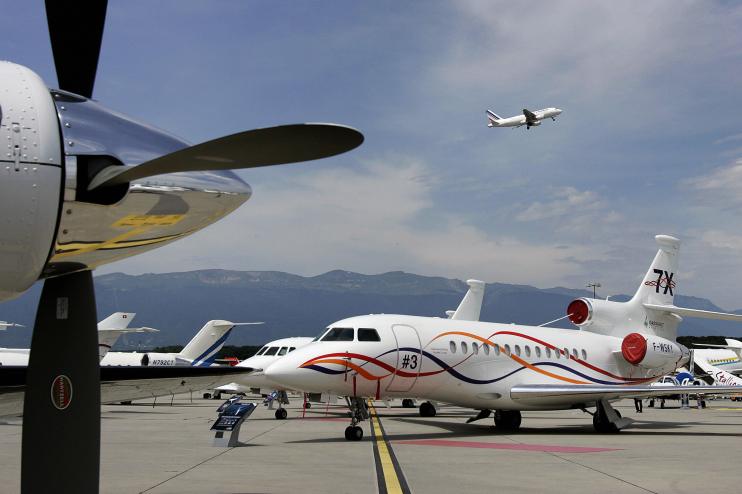Labour’s private jet ban plan makes ‘little sense,’ says industry

The private aviation industry has criticised a Labour-backed proposal to impose a fully-fledged ban on private jets in the UK as soon as 2025 as making “little sense”.
In a move which would remove London as Europe’s most active player in the industry should it come to fruition, shadow transport secretary Andy McDonald yesterday backed a report by left-leaning thinktank Common Wealth which said private planes using fossil fuels should be banned in six years.
Read more: Electric-powered regional flights ‘could be taking off by 2030’
The report said that, on average, a European private jet journey generates “10 times as much greenhouse gasses” as the equivalent flight on an economy class plane. It added this figure rose to “roughly 150 times” more than a high-speed train.
It said such a move would spark research into developing clean electric aircraft. McDonald said: “This report makes a very convincing argument.”
“Why is the government enabling billionaires to trash the climate when it’s the rest of us who will suffer the consequences?”
But the European Business Aviation Association said that although the sector needed to become more sustainable, business aviation makes up just two per cent of aviation’s carbon emissions.
As a result, “outright banning private jets in the UK as suggested … would do little to curb climate change,” the trade group said.
“Furthermore air traffic is an international business, meaning unilateral, isolated solutions make little sense.”
Read more: London urged to plan for flying taxi future
London is Europe’s busiest city for private flights, with Luton, Farnborough and Biggin Hill airports generating a combined total of more than 73,000 flight movements in 2018, versus 54,000 in Paris.
Jonathan Clough, UK director of private aviation firm Jetfly, told City A.M.: “Banning private jets from British Airspace is not a cure to climate change.
“Government legislation which encourages the use of biofuels would be a sensible first step and further investment in new greener technologies.
“A lot of good comes from influential people meeting face to face to discuss the big issues of today and private aviation facilitates this quickly and safely.”
McDonald added: “Climate targets cannot be met without curbing pollution from air travel, and a passenger on a private jet produces ten times the emissions of someone on a regular flight. This simply cannot be ignored.
“In just a few years’ time it will be possible for these journeys to be made by electric aircraft – so long as government puts in place the right incentives.”
Read more: London private jet airports Farnborough and Biggin Hill saw double-digit growth in 2018
Research has suggested the next decade will yield the launch of electric flying taxis and electric planes entering the market in both regional flights and private aviation.
A paper by Citigroup researchers predicted in September that electric technology will begin disrupting the so-called general aviation market, which includes flights carrying between two and 14 passengers, by 2022.